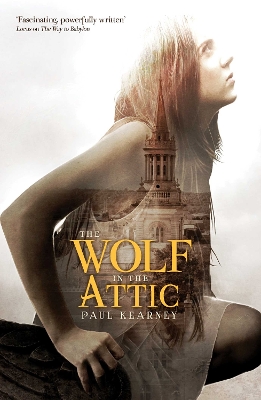Reviewed by gmcgregor on
Anna is about to become a teenager, but she's still clinging to childhood (symbolized in the form of a beloved doll, a gift from her long-gone brother, which she keeps close all the time). For me, this is a characterization that works...the experiences she's suffered through would definitely make one leery of change, of adulthood in all of its complexity. But thrown into adulthood she is when her father dies and she has nowhere to go but the workhouse. Nowhere, that is, but to a band of travelers (they're not exactly Romani, but a similar kind of idea) that she'd previously met when exploring the woods near her home. This is where the story veers away from a refugee tale and into magical realism, because Anna finds herself drawn into the centuries-long skirmish between her new friends (who are hiding some secrets) and a sect descended from the Druids. There's even the devil hisownself in the mix for her soul. Where Anna ends up with, and how, make up the balance of the story.
The back half of the story, honestly, was where it lost me. Kearney creates a compelling world for Anna in Oxford...some familiar literary giants even show up, but in a way that I thought was organic and worked naturally within the narrative. The story of Anna and her father and how they got into the circumstances they're in is well-crafted and heartfelt, and Anna is an easy character to connect with: a pre-teen who is bold and curious but not indomitable, and who finds herself just wrenchingly alone when her father is gone. Her first few encounters with the travelers set the stage well for her to flee to them in her time of need. I actually loved the way her encounters with the Devil were written...eerie and unsettling and emphasizing just how vulnerable she is. But the greater war between the travelers and the Druids, how it all plays out...it just fell totally flat for me. It felt like Kearney didn't have a great idea for his own backstory and so provided only minimal details in the hopes that the reader would infer a richer background than is there. It's a promising premise and has merit but is torpedoed by its own last third.
Reading updates
- Started reading
- 17 September, 2016: Finished reading
- 17 September, 2016: Reviewed
